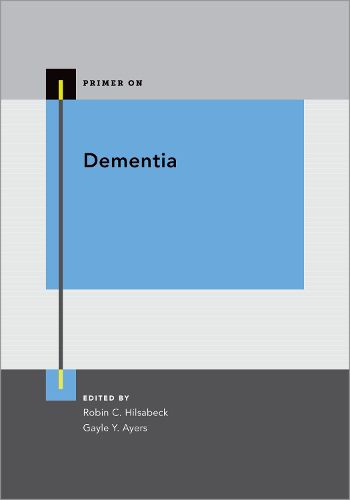Readings Newsletter
Become a Readings Member to make your shopping experience even easier.
Sign in or sign up for free!
You’re not far away from qualifying for FREE standard shipping within Australia
You’ve qualified for FREE standard shipping within Australia
The cart is loading…






Adults 65 and older are the fastest growing segment of the population worldwide, which means there will be more people living with mild cognitive impairment and dementia. Written at a resident level, the Primer on Dementia provides early career professionals with the information necessary to care for the often complex clinical presentations of people with age-associated neurocognitive disorders. This book is organized into three sections: (1) core concepts, (2) dementia syndromes, and (3) disease management. The chapters in section one focus on clinical knowledge and skills applicable across all dementias, including the diagnostic interview and neurologic examination, frequently used cognitive screening measures, neuropsychological assessment, neuroimaging, and differential diagnosis. Chapters in section two review the most common dementia syndromes and cover epidemiology, neuropathology, biomarkers, genetics, and clinical signs and symptoms, providing at least one illustrative case. The final section presents the latest evidence-based interventions from risk management to pharmacologic and nonpharmacologic approaches, while also addressing safety considerations, legal issues, palliative and advanced care planning, and attending to caregivers.
$9.00 standard shipping within Australia
FREE standard shipping within Australia for orders over $100.00
Express & International shipping calculated at checkout
Adults 65 and older are the fastest growing segment of the population worldwide, which means there will be more people living with mild cognitive impairment and dementia. Written at a resident level, the Primer on Dementia provides early career professionals with the information necessary to care for the often complex clinical presentations of people with age-associated neurocognitive disorders. This book is organized into three sections: (1) core concepts, (2) dementia syndromes, and (3) disease management. The chapters in section one focus on clinical knowledge and skills applicable across all dementias, including the diagnostic interview and neurologic examination, frequently used cognitive screening measures, neuropsychological assessment, neuroimaging, and differential diagnosis. Chapters in section two review the most common dementia syndromes and cover epidemiology, neuropathology, biomarkers, genetics, and clinical signs and symptoms, providing at least one illustrative case. The final section presents the latest evidence-based interventions from risk management to pharmacologic and nonpharmacologic approaches, while also addressing safety considerations, legal issues, palliative and advanced care planning, and attending to caregivers.